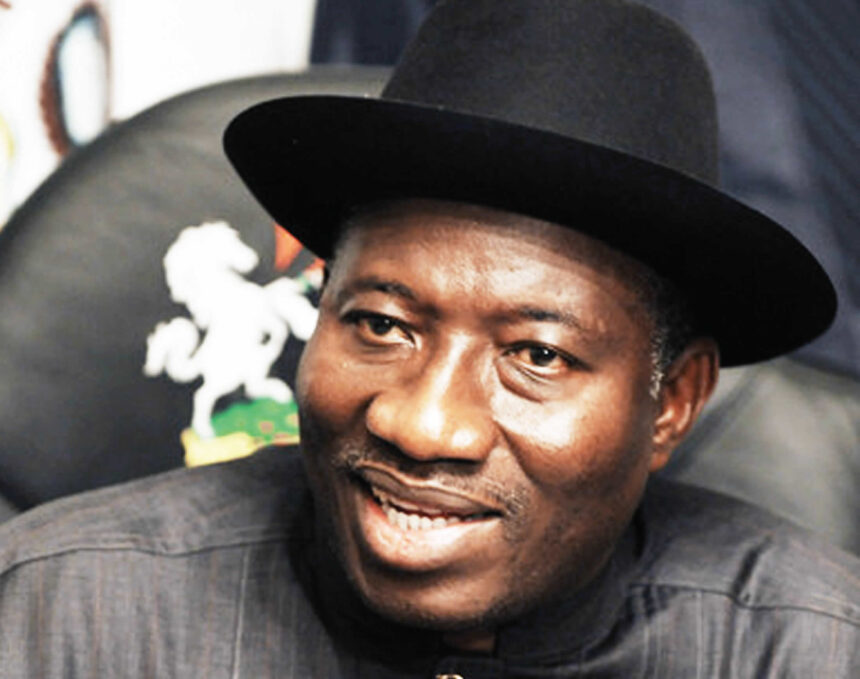As the largest election in Africa approaches, the political landscape is buzzing with excitement about the potential candidacy of former President Goodluck Jonathan in the 2027 presidential race.
This development opens up an interesting dialogue about the possibility of a contest between Jonathan and the incumbent President Bola Tinubu.
If Jonathan chooses to run and emerges victorious, the changes for Nigeria could be significant.


Reflecting on his past, Jonathan has attributed his electoral loss in 2015 to betrayal from within his own political ranks. During that election, he was vying for a second term but was ultimately defeated by Major General Muhammadu Buhari, representing the newly formed All Progressives Congress (APC).
Now, under intense pressure from his political allies, Jonathan is actively consulting on the feasibility of contesting against Tinubu in the upcoming election. This prospect has led to a diverse range of opinions among political supporters and analysts, highlighting the divisions within the party and the electorate.
Meanwhile, President Tinubu’s administration is facing mounting criticism as many Nigerians grapple with the challenges posed by his economic reforms aimed at transforming the nation’s fortunes. While some are optimistic about these changes, others are growing increasingly impatient with the pace at which they are being implemented, leading some to contemplate voting out the former governor of Lagos State.
Within just two years of his administration, Tinubu’s policies have begun to take effect in various sectors, but the public is yearning for more immediate solutions to pressing issues such as poverty and economic instability.
Should Jonathan decide to enter the race and secure victory in the 2027 elections, he could bring about significant shifts in policies that might counteract Tinubu’s reforms, potentially leading to unforeseen consequences for the nation.
Several key policies that could be impacted by such a change in leadership are currently under discussion.
Education and Social Welfare
Data released by the Nigerian Education Loan Fund (NELFUND) show that within just 12 months, the government under the Tinubu-led administration was able to give over 550,000 with a N56.85 billion disbursement as of April 2025.
Similarly, an $800 million cash transfer programme was launched to support up to 70 million Nigerians affected by economic reforms, particularly the removal of fuel subsidies.
The administration also announced a monthly N45,000 stipend for technical college students across the country.
Energy Sector Reforms
President Tinubu signed the Electricity Act into law, ending the federal monopoly in the power sector and empowering states and private entities to generate, distribute, and transmit electricity.
Data revealed that Nigeria secured the first deepwater project in over a decade, the $5 billion Bonga North Field Offshore Field, which produced 350 million barrels of crude oil. This is reflected in Tinubu’s policies to attract international investment.
Economic Indicators
Tinubu was also able to fuel an increase in the Gross Domestic Product. Nigeria’s economy experienced its strongest growth in a decade, expanding by 4.6% year-on-year in the fourth quarter of 2024, driven by fiscal improvements and bold reforms. In 2024 alone, Nigeria achieved a balance of payments surplus of $6.83 billion, reflecting successful economic reforms and increased investor confidence.
Over $50.8 billion worth of Memorandums of Understanding (MoUs)
Since assuming office, President Tinubu has overseen the signing of over $50.8 billion worth of Memorandums of Understanding (MoUs) across critical sectors including energy, agriculture, ICT, education, transportation, healthcare, and defence. These agreements span a wide array of partners—traditional allies and emerging economies alike—reflecting a diversified, strategic, and pragmatic diplomatic approach.
Debt Service Reduction:
The percentage of revenue spent on debt service decreased from 97% to 68%, reflecting improved fiscal management. On Wednesday, May 8, 2025, Nigeria was exempted from the list of countries indebted to the International Monetary Fund (IMF), having cleared off the last tranche of its $1.61 billion debt to the multilateral institution.
Infrastructure Development
Construction commenced on the 700 km Lagos-Calabar Coastal Highway, intended to smoothen connectivity between the western and southeastern regions of Nigeria.
In May 2024, Tinubu inaugurated the ANOH and AHL Gas Processing Plants, boosting domestic gas supply by 500 million standard cubic feet per day.




